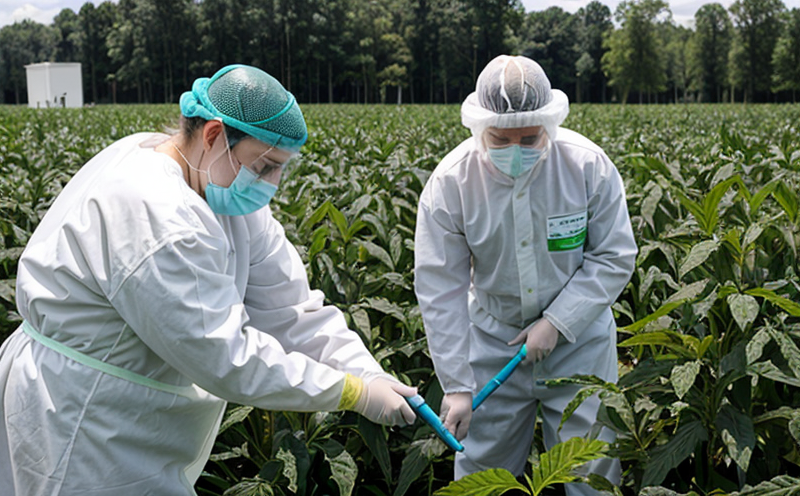ISO 17625 Phosphatase Activity Testing in Biocontrol Microbes
The ISO 17625 standard provides a robust methodology for assessing phosphatase activity in biocontrol microbes. This test is crucial for ensuring the efficacy of biological control agents, which are used to manage pests and diseases in agricultural settings without resorting to chemical pesticides. Phosphatase enzymes play a significant role in nutrient cycling within soil ecosystems; thus, their quantification helps determine the potential effectiveness of these beneficial microorganisms.
Phosphatase activity is measured by monitoring the breakdown of orthophosphate from orthophosphates such as sodium phosphate dibasic (Na2HPO4). The enzyme catalyzes this reaction, releasing inorganic phosphorus into solution. This process can be quantified spectrophotometrically using reagents that specifically detect the liberated phosphate ion.
The protocol outlined in ISO 17625 not only ensures consistency but also allows for accurate comparisons between different biocontrol products or formulations over time. By adhering to this standard, laboratories ensure they are providing reliable data that can be trusted by regulatory bodies and end-users alike.
One key aspect of the test is the preparation of the microbial sample. Proper aseptic techniques must be employed during collection and processing to avoid contamination from non-target organisms. Once prepared, the samples undergo incubation under controlled conditions (typically at 30°C) until sufficient activity has been achieved.
Instrumentation used in this test includes spectrophotometers equipped with appropriate cuvettes for measuring absorbance at specific wavelengths indicative of phosphate levels. Additionally, pH meters may be required to maintain optimal reaction environments throughout the process. Proper calibration and maintenance are essential to ensure accurate readings.
| Parameter | Description |
|---|---|
| Temperature Control | Incubation should be maintained at 30°C ± 1°C. |
| pH Adjustment | Reaction pH must remain between 6.8 and 7.2. |
| Enzyme Activity | Typical incubation times range from 1 hour to overnight. |
Why It Matters
The ability to accurately measure phosphatase activity in biocontrol agents is critical for several reasons. Firstly, it allows researchers and manufacturers to optimize the formulation of these products, ensuring they contain sufficient active ingredients capable of delivering effective results against target pests or pathogens.
- Improved product performance leads directly to better crop protection without harming beneficial insects or soil ecosystems.
- Avoidance of unnecessary chemical inputs reduces environmental impact and promotes sustainable farming practices.
Secondly, compliance with international standards like ISO 17625 enhances credibility among stakeholders. Regulatory authorities require such tests to verify product claims before approving them for use in controlled environments or open fields. This standardization also fosters trust between buyers and sellers within the agricultural supply chain.
- It ensures transparency regarding product quality.
- It facilitates easier procurement decisions by providing consistent criteria across suppliers.
Applied Standards
The International Organization for Standardization (ISO) has established ISO 17625 specifically to address the need for a standardized approach to measuring phosphatase activity in biocontrol microbes. This standard is widely recognized and adopted globally, making it an essential tool for any laboratory conducting these types of analyses.
Compliance with this standard ensures that results are comparable across different laboratories worldwide, which is particularly important given the collaborative nature of much modern research into biological control methods.
Industry Applications
- Incorporation into product development cycles to evaluate new biocontrol agents.
- Quality assurance during production processes, ensuring consistent potency of released products.
- Validation studies comparing different formulations or strains within the same species.





